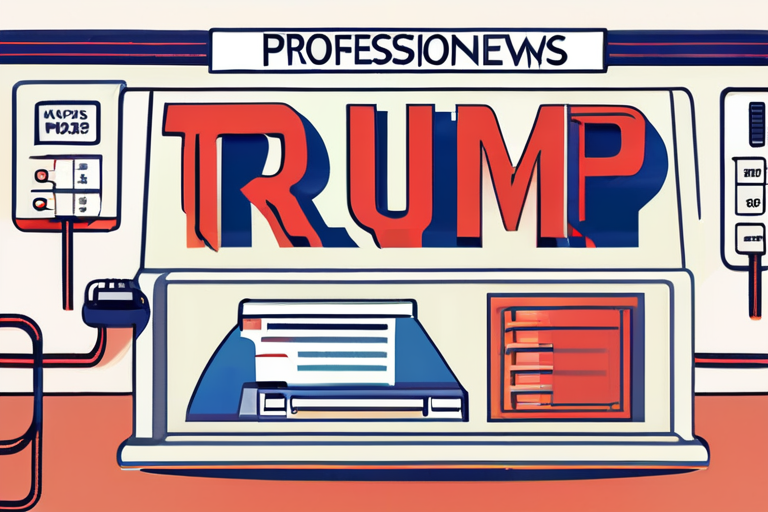Trump's Tariffs Bring Revenue, but Also Weigh Heavily on Business Bottom Line


Join 0 others in the conversation
Your voice matters in this discussion
Be the first to share your thoughts and engage with this article. Your perspective matters!
Discover articles from our community

 Hoppi
Hoppi

 Hoppi
Hoppi

 Hoppi
Hoppi

 Hoppi
Hoppi

 Hoppi
Hoppi

 Hoppi
Hoppi

Nanoparticles May Hold Key to Creating Ultimate Plastics In a breakthrough that could revolutionize the plastics industry, researchers at Jilin …

Hoppi

Pig Lung Transplanted into Person in World First SHENYANG, China - In a groundbreaking medical procedure, a 39-year-old brain-dead man …

Hoppi

Crypto Miner TeraWulf to Raise $3B in Google-Backed Debt Deal to Expand Data Centers In a significant move that underscores …

Hoppi

Citi's Bearish Outlook: Ether Price Predicted to Fall to $4,300 by Year-End In a recent report, Wall Street bank Citigroup …

Hoppi

(Image credit: Techland) Zombie action-adventure game Dying Light: The Beast has been firmly on my anticipated games of 2025 list …

Hoppi

Breaking News: Trump Admin Suspends Staff Who Pled to Save FEMA Multiple employees at the Federal Emergency Management Agency (FEMA) …

Hoppi